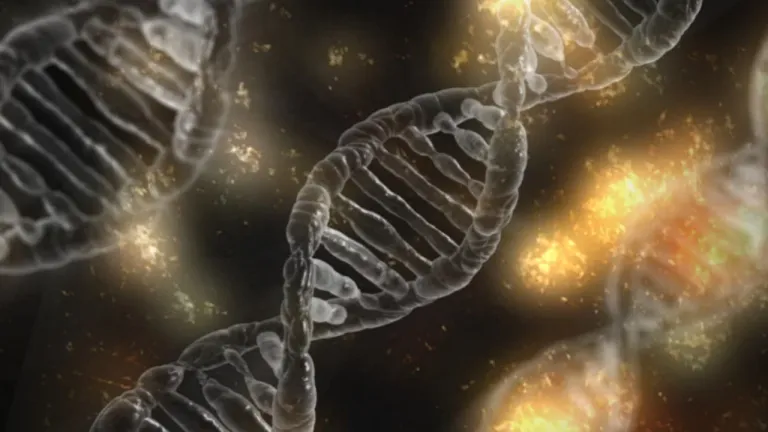Unlocking the Genetic Mysteries of Aging: Part Two - A Scientific Discourse.
In this follow-up to our discussion yesterday on Genetics and Aging: Unraveling the Mysteries of Longevity, we're going to dive deeper into the scientific aspects of genetics and aging. This topic may not be as light-hearted as our previous conversation, but it's equally captivating and essential. So buckle up dear reader, let's journey together.

Genetic Variability: The Aging Enigma
Scientists are continually intrigued by the wide range of ways people age. Each of us has our own distinct genetic code, and it's becoming clear that these genetic variations can have a substantial impact on how we age.
Take, for instance, the FOXO3 gene we discussed earlier, the supposed "gene of youth." It's not a one-size-fits-all solution. Some individuals may have multiple copies of the FOXO3 variant associated with longevity, while others might have none. This diversity creates a complex puzzle, making it challenging to pinpoint the exact genetic formula for eternal youth.
Epigenetics: The Unseen Orchestra Conductor
Let's introduce a new aspect into our discussion of genetics and aging: epigenetics. Think of epigenetic modifications as an unseen conductor of an orchestra, guiding the genes in your body. They have the power to switch genes on or off, and these modifications evolve as we go through life, responding to different environmental influences.
Picture your genetic code also as a sheet of music. Epigenetics is like the maestro, determining which notes are played and when. Scientists are now delving into the into the complex world of how these epigenetic changes can impact the aging process. This exploration might uncover fresh strategies for potentially slowing down the aging clock.
Nature vs. Nurture: The Endless Debate
Aging, as we've discussed, is a multifaceted dance between your genetic makeup and the way you live your life. It's not solely about the genes you inherit but also about how you care for them as the years go by.
Now, picture this scenario: two identical twins, sharing the exact genetic instructions. However, their life choices diverge significantly. One twin lives a sedentary, stress-filled existence, while the other prioritizes regular exercise, a well-balanced diet, and effective stress management. Despite their identical genetic blueprints, these twins are likely to experience quite distinct journeys through the aging process.
The Role of Telomeres Revisited
Remember those telomeres we discussed? They're not just passive protectors; they're actively involved in the aging process. Shortening telomeres have been associated with aging-related diseases.
Researchers are exploring ways to maintain or even lengthen telomeres, potentially offering a path to slow down the aging clock. This is a promising avenue of research that could lead to groundbreaking anti-aging therapies.
The Future of Aging: A Collaborative Effort
When we ponder the intricate connection between genetics and aging, it's crucial to recognize that science is a collaborative effort. Scientists all around the world are putting in dedicated effort to unveil the mysteries of aging, and their discoveries will inevitably shape how we experience the aging process in the future.
This scientific journey isn't a solitary pursuit; it's a global conversation. Researchers share their breakthroughs, engage in thorough discussions, and together, they are pushing the limits of what we know about aging. It's a worldwide effort aimed at improving our understanding of this fundamental aspect of life.
Now, dear readers, it's your turn to join the conversation. What are your thoughts on the interplay between genetics and aging? Do you think science will eventually conquer the aging puzzle, or is it an ever-evolving mystery? Let's engage in this scientific discourse and continue to unravel the fascinating mysteries of aging together. 🧬🔬💡
Thanks for your contribution to the STEMsocial community. Feel free to join us on discord to get to know the rest of us!
Please consider delegating to the @stemsocial account (85% of the curation rewards are returned).
Thanks for including @stemsocial as a beneficiary, which gives you stronger support.